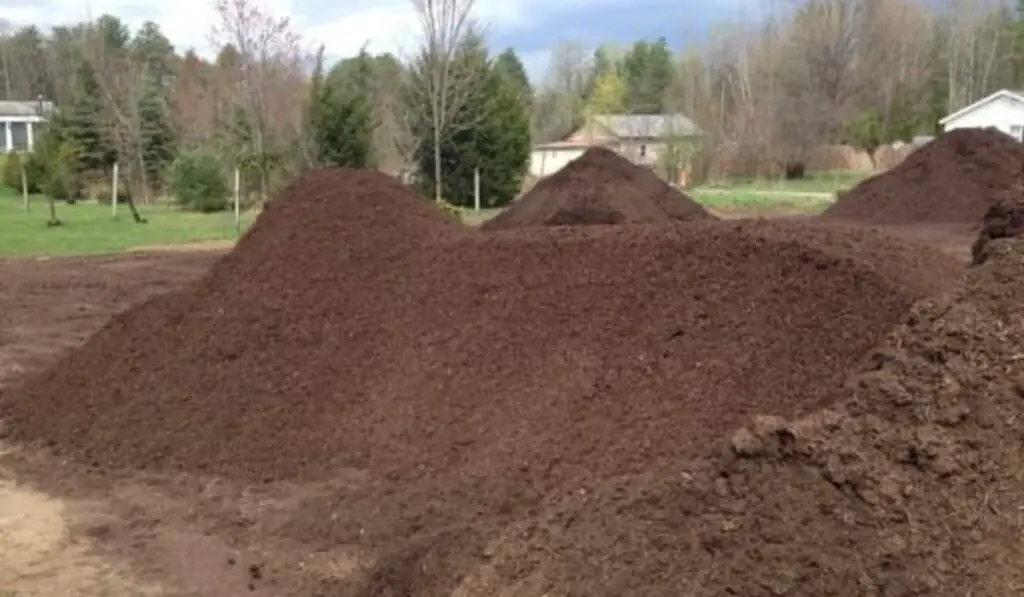Sweet Peet is a high premium mulch consisting of manure, plant fibers, and virgin wood components. While supporting earthworms and other beneficial soil organisms, sweet Peet provides plants with a slow-release type of nitrogen.
This post will dive into Sweet Peet’s details, among many things, Sweet Peet mulch pros and cons.
Contents
Pros of Sweet Peet Mulch
Whether you have a little fruit tree nursery or a towering fruit tree in your garden, Sweet Peet mulch provides everything you need to maintain the health of the plants in your garden. Here are reasons why Sweet Peet mulch should be your preferred choice for your outdoor garden.
Sweet Peet Nourishes the Soil
Sweet Peet Mulch nourishes the soil, fostering plant growth while excluding the use of harmful chemicals.
The mulch also aids the soil in retaining moisture, preventing the development of various soil-borne diseases, and boosting soil quality.
Sweet Peet Mulch Is Easy To Spread
Sweet Peet mulch weighs less, making distribution around the garden a simple task. You can distribute Sweet Peet across the yard in small mounds or blow them in with a leaf blower.
Sweet Peet Mulch Negates the Threat Posed by Toxic Chemicals
Because Sweet Peet is organic, it eliminates the danger that toxic chemicals could harm your family, friends, pets, and plants. Employing this organic mulch adds nutrients and minerals to the soil without posing a risk to your family and pets.
Sweet Peet Mulch Helps Protect Against Acid Rain
Sweet Peet creates a barrier that absorbs acid rain and gently buffers it before it reaches the root zone. For this reason, sweet mulch is beneficial for acid rain protection. The same holds for its ability to absorb alkaline road salts that may leak into your soil throughout the winter.
Sweet Peet Mulch Helps Plants Grow Healthy
To maintain the attractiveness of your vivid perennials throughout, incorporating Sweet pea mulch into your garden helps nourish plants and ensure flowers blossom. This allows your garden to remain beautiful and healthy each season.
Sweet Peet Mulch Lessens the Risk of Nitrogen Leaching
As a result of its manure content, Sweet Peet will reduce nitrogen leaching that occurs when using conventional hardwood mulch.
Cons of Sweet Peet as Mulch
This section of Sweet Peet mulch pros and cons examines the drawbacks of this organic mulch. Excessive amounts of Sweet Peet can have the reverse effect. Some of these effects include:
- An overabundance of Sweet Peet mulch can suffocate and bury plants
- Insects can easily conceal themselves in Sweet Peet mulch
Should I Use Sweet Peet as Mulch in My Garden?

Sweet Peet is the ideal organic mulch for vegetable and flower gardens. Sweet Peet balances low and high pH of soils by assisting with preserving the optimal gardening area.
During the manufacturing process, Sweet Peet is heated to kill weeds and weed seeds, inhibiting contamination in the garden.
Sweet Peet is the finest natural mulch for a vegetable garden. The mulch improves the soil quality, helps keep the plants in good health, and replenishes bacteria that chemical agents and acid rain commonly eradicate.
What’s the pH of Sweet Peet and How Does It Affect the Soil?
Sweet Peet has a pH value of between 7.6 to 8.5, making it slightly alkaline. Its nearly neutral pH level aids in maintaining the optimum pH for nutrient delivery to the feeder roots of seedlings in both acidic and basic soils.
Sweet Peet mulch is perfect for weakening hard clay soils, which inhibit healthy plant growth. Poor soil conditions bring on several garden-related concerns. Areas with dense or compact clay soil whose soil’s pH could be exceedingly low or acidic are sometimes tricky for planting plants.
Acid-loving plants such as azaleas and hydrangeas can thrive in these areas, but too many other plants will perish. Using Sweet Peet mulch in such locations will help plants in your garden thrive.
How To Use Sweet Peet as Garden Mulch
The following methods will assist you in using Sweet Peat mulch effectively for the best results:
- Step 1: Before applying this mulch, remove weeds from the garden.
- Step 2: Cover your plants, trees, and bushes with Sweet Peet. To avoid weed development, ensure that the initial layer is 2 to 3 inches thick.
Never cover the soil above roots with polyethylene plastic. If a significant portion of the root zone is covered with plastic, air and water will be prevented from reaching the tree, which could lead to severe problems.
Use a maximum depth of three inches. An accumulation of moisture on the trunk caused by an excess of mulch can encourage the growth of insects, illness, and rot.
Final Thoughts
Should you use Sweet Mulch in your garden? Absolutely, from the Sweet Peet mulch pros and cons above, the pros outweigh the cons.
FAQs
Is Sweet Peet a good mulch?
Sweet Peet is a good mulch. With the help of this mulch, your vibrant flower beds will look fabulous throughout the season.
How is Sweet Peet different from other mulches?
Unlike other mulches, Sweet Peet improves the naturally present cat-ion exchange, creating an adverse environment for weed growth.
Can you plant directly in Sweet Peet?
Annuals can be planted immediately in Sweet Peet. However, before planting trees, shrubs, and perennials, you should incorporate Sweet Peet into the soil and then spread it as a top dressing (or mulch) around the plants.